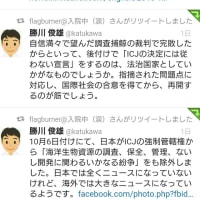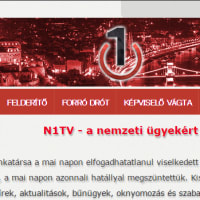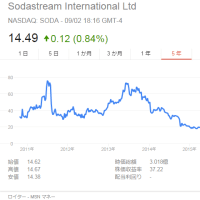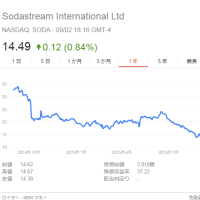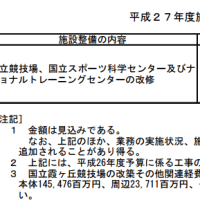今回は小ネタ。
何か知らんが、Gideon Behar 氏というイスラエル外務省の反ユダヤ主義対策部(?)審議官(the director of the Department for Combatting Anti-Semitism of the Israel Ministry of Foreign Affairs)の人が、Web 上で流布している反ユダヤ主義的言説への対策について述べてた模様。
・Op-Ed: What if the Nazis had tweeted?(2013年5月23日 jta.org)
上の論説のタイトルは、単に前フリだったりする。
とはいえ、論説の冒頭では、仮に1930年代に Twitter が使われていたら・・・という想像を巡らせていたのだが。
以下、2013年5月23日分 jta.org『What if~』から冒頭の部分を(略
---- 以下引用 ----
The question, disturbing as it might sound, can no longer be approached only as theoretical.
As the arch-propagandist of Nazism, Joseph Goebbels spread the demonic messages of his Fuehrer[引用者注:総統] via the written word, mass demonstrations, radio and film.
He used those avenues to near perfection, promoting what perhaps was the most evil publicity campaign in the history of humankind.
Some eight decades later, the tools are different but the motivations are the same.
In the place of vitriol-filled radio broadcasts and Berlin stadia filled to capacity with saluting Nazis, the resources employed today by bigots are increasingly the Internet and social media.
Undoubtedly the #HeilHitler hashtag, if launched in 1933, would have had followers in the many millions, likely surpassing even the numbers of the most revered celebrities who employ resources like Twitter.
(以下略)
---- 引用以上 ----
ナチスが Twitter を使っていたら~ってのは、思考実験としては悪くない。
ただ、ナチスの場合、プロパガンダ発信より Twitter の利用を通して国民や支配対象とする人達の統制を重視しそうだが(苦笑)。
元々、Web ってのはその手の統制を容易にする側面を併せ持ってるしね(謎)。
話を例の論説に戻す。
さっきの部分の後、論説は Web 上における反ユダヤ主義的言説の「戦い」について語っていた。
以下、2013年5月23日分 jta.org『What if~』からその部分を(略
---- 以下引用 ----
(中略)
The reality in the online war against hate is that our enemies are smarter than any anti-Semitic forces we have ever seen.
They understand the power of the Internet and embrace the protections under law it offers.
Today’s most effective anti-Semites are not the flag-waving, stormtrooping skinheads of yesteryear.
While those forces still exist, their reach pales in comparison to the computer users able to spill their messages of hate to millions around the globe in a matter of minutes.
The peace-loving forces within the international community are therefore faced with a daunting challenge — yet it is not insurmountable.
(以下略)
---- 引用以上 ----
"our enemies" の "our" は、必ずしも "peace-loving forces within~" とは一致しないと考えた方が無難と見た。
そもそも、"our enemies" の "enemies" って誰って話だけど・・・。
だが、例の論説はそんな疑問に構うことなく、Web 上での反ユダヤ主義的発言のみならずヘイトスピーチ全般への対策に話を広げていた。
以下、2013年5月23日分 jta.org『What if~』からその部分を(略
---- 以下引用 ----
(中略)
First, we need to recognize the scope of the problem.
Online hate is difficult to impossible to quantify.
While perhaps we can try to count the number of problematic websites, there is no real way to know how many people those sites reach.
All the more so with social media, where the trail of content can split into literally thousands of directions in minutes.
The scope of the problem is unprecedented and enormous, and thus deserving of massive resources and international cooperation.
Second, and perhaps more fundamental, the world must change its mindset for what deserves protection within the online community.
Most often, when people speak about the Internet and the world of social media, terms bandied about are “marketplace of ideas” or “common ground for expression” or similar terminology professing that users should be allowed to disseminate whatever ideas come into their minds at a given time.
This position is defended by those who advocate that freedom of expression should be interpreted literally to allow people to express whatever they feel, regardless of how inflammatory or incendiary it might be.
This must be rethought.
Freedom of expression indeed means that people’s right to free speech and free speech can and must be protected. But the protection should never be extended to expressions that come at the physical expense of the other.
Without entering into legal discourse that is far too complex for this forum, there is no disputing that hate speech on the Internet and in social media has the very real potential to inspire acts of violence.
This has been proven countless times since the advent of the Internet and is realized every day through the examples of young and impressionable people who turn to the web for inspiration for all sorts of devious ideologies and beliefs.
In order for the Internet to sustain its openness, all responsible parties must commit to guarding against the use of online hate mongering.
(以下略)
---- 引用以上 ----
上の引用部分で言ってることは、特段 Web 上のヘイトスピーチ対策についてなら間違ってないんだろうけどさ・・・。
どことなく、「自分達はそういう発言はしない」という確信を持ってる感が否めないのは俺だけ?
(俺もそうなんだけど)いつどこで Web 上でヘイトスピーチをカマしてしまうのか、なんて誰にも予想できないのに(謎)
まぁ、そうならないよう十分気をつけなきゃいけないのは確かなんだけど、いかんせん俺もわかんない部分が多いだけに、人にあーだこーだ言えないのが辛い所。
#今回はオチなし。
何か知らんが、Gideon Behar 氏というイスラエル外務省の反ユダヤ主義対策部(?)審議官(the director of the Department for Combatting Anti-Semitism of the Israel Ministry of Foreign Affairs)の人が、Web 上で流布している反ユダヤ主義的言説への対策について述べてた模様。
・Op-Ed: What if the Nazis had tweeted?(2013年5月23日 jta.org)
上の論説のタイトルは、単に前フリだったりする。
とはいえ、論説の冒頭では、仮に1930年代に Twitter が使われていたら・・・という想像を巡らせていたのだが。
以下、2013年5月23日分 jta.org『What if~』から冒頭の部分を(略
---- 以下引用 ----
The question, disturbing as it might sound, can no longer be approached only as theoretical.
As the arch-propagandist of Nazism, Joseph Goebbels spread the demonic messages of his Fuehrer[引用者注:総統] via the written word, mass demonstrations, radio and film.
He used those avenues to near perfection, promoting what perhaps was the most evil publicity campaign in the history of humankind.
Some eight decades later, the tools are different but the motivations are the same.
In the place of vitriol-filled radio broadcasts and Berlin stadia filled to capacity with saluting Nazis, the resources employed today by bigots are increasingly the Internet and social media.
Undoubtedly the #HeilHitler hashtag, if launched in 1933, would have had followers in the many millions, likely surpassing even the numbers of the most revered celebrities who employ resources like Twitter.
(以下略)
---- 引用以上 ----
ナチスが Twitter を使っていたら~ってのは、思考実験としては悪くない。
ただ、ナチスの場合、プロパガンダ発信より Twitter の利用を通して国民や支配対象とする人達の統制を重視しそうだが(苦笑)。
元々、Web ってのはその手の統制を容易にする側面を併せ持ってるしね(謎)。
話を例の論説に戻す。
さっきの部分の後、論説は Web 上における反ユダヤ主義的言説の「戦い」について語っていた。
以下、2013年5月23日分 jta.org『What if~』からその部分を(略
---- 以下引用 ----
(中略)
The reality in the online war against hate is that our enemies are smarter than any anti-Semitic forces we have ever seen.
They understand the power of the Internet and embrace the protections under law it offers.
Today’s most effective anti-Semites are not the flag-waving, stormtrooping skinheads of yesteryear.
While those forces still exist, their reach pales in comparison to the computer users able to spill their messages of hate to millions around the globe in a matter of minutes.
The peace-loving forces within the international community are therefore faced with a daunting challenge — yet it is not insurmountable.
(以下略)
---- 引用以上 ----
"our enemies" の "our" は、必ずしも "peace-loving forces within~" とは一致しないと考えた方が無難と見た。
そもそも、"our enemies" の "enemies" って誰って話だけど・・・。
だが、例の論説はそんな疑問に構うことなく、Web 上での反ユダヤ主義的発言のみならずヘイトスピーチ全般への対策に話を広げていた。
以下、2013年5月23日分 jta.org『What if~』からその部分を(略
---- 以下引用 ----
(中略)
First, we need to recognize the scope of the problem.
Online hate is difficult to impossible to quantify.
While perhaps we can try to count the number of problematic websites, there is no real way to know how many people those sites reach.
All the more so with social media, where the trail of content can split into literally thousands of directions in minutes.
The scope of the problem is unprecedented and enormous, and thus deserving of massive resources and international cooperation.
Second, and perhaps more fundamental, the world must change its mindset for what deserves protection within the online community.
Most often, when people speak about the Internet and the world of social media, terms bandied about are “marketplace of ideas” or “common ground for expression” or similar terminology professing that users should be allowed to disseminate whatever ideas come into their minds at a given time.
This position is defended by those who advocate that freedom of expression should be interpreted literally to allow people to express whatever they feel, regardless of how inflammatory or incendiary it might be.
This must be rethought.
Freedom of expression indeed means that people’s right to free speech and free speech can and must be protected. But the protection should never be extended to expressions that come at the physical expense of the other.
Without entering into legal discourse that is far too complex for this forum, there is no disputing that hate speech on the Internet and in social media has the very real potential to inspire acts of violence.
This has been proven countless times since the advent of the Internet and is realized every day through the examples of young and impressionable people who turn to the web for inspiration for all sorts of devious ideologies and beliefs.
In order for the Internet to sustain its openness, all responsible parties must commit to guarding against the use of online hate mongering.
(以下略)
---- 引用以上 ----
上の引用部分で言ってることは、特段 Web 上のヘイトスピーチ対策についてなら間違ってないんだろうけどさ・・・。
どことなく、「自分達はそういう発言はしない」という確信を持ってる感が否めないのは俺だけ?
(俺もそうなんだけど)いつどこで Web 上でヘイトスピーチをカマしてしまうのか、なんて誰にも予想できないのに(謎)
まぁ、そうならないよう十分気をつけなきゃいけないのは確かなんだけど、いかんせん俺もわかんない部分が多いだけに、人にあーだこーだ言えないのが辛い所。
#今回はオチなし。











